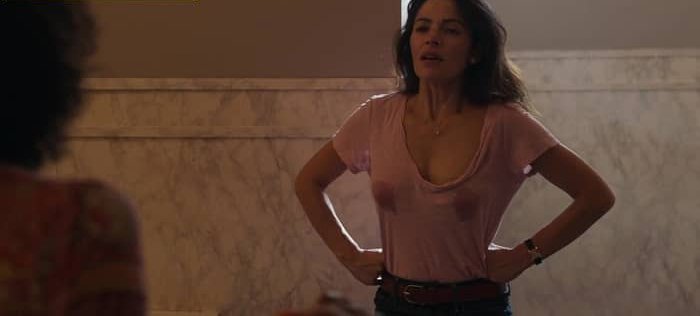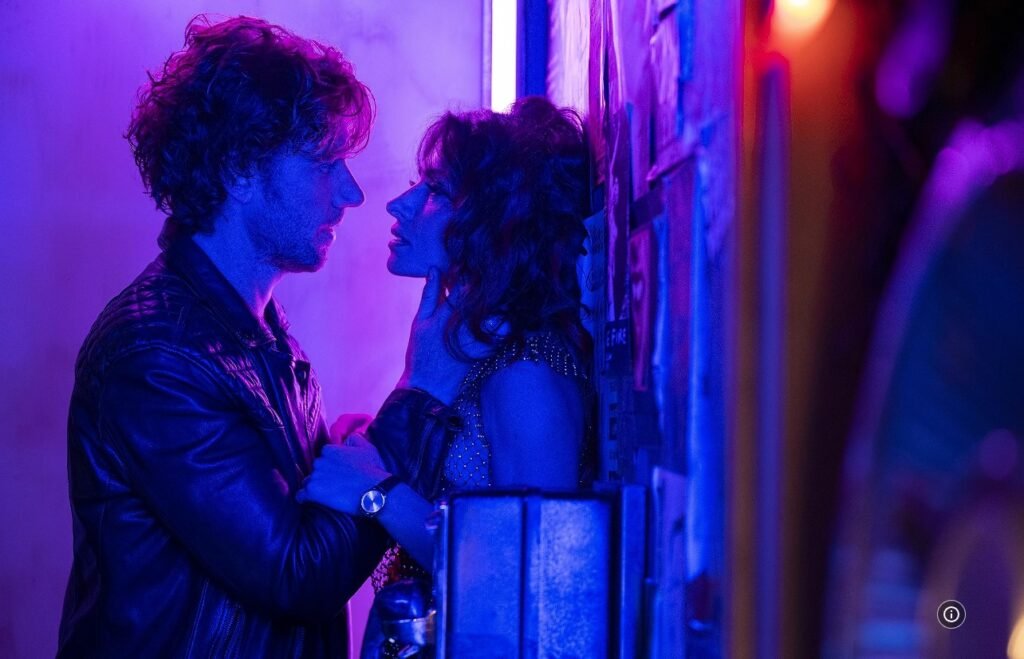Sex/Life Season 1 :-
Netflix’s latest series, “Sex/Life,” delves into the complexities of marital dissatisfaction and the concept of monogamy, aiming to provoke thought on significant themes. However, as the series unfolds, it becomes apparent that achieving engaging storytelling amidst controversial subject matter is no easy feat.
Movie Ratings
| Release Date | 25 June 2021 |
| Language | English |
| Genre | Comedy, Drama, Romance |
| Episodes | 8 |
| Cast | Sarah Shahi, Mike Vogel, Adam Demos, Margaret Odette, Phoenix Reich, Jonathan Sadowski, Li Jun Li, Amber Goldfarb, Meghan Heffern, Joyce Rivera |
| Director | Patricia Rozema, Jessika Borsiczky, Samira Radsi, Sheree Folkson |
| Writer | Stacy Rukeyser, Jordan Hawley, Jessika Borsiczky, Jamie Dennig, Resheida Brady, Kimberly Karp |
| Cinematography | David A. Makin, Michael McMurray |
| Music | Mark Isham, Isabella Summers |
| Producer | Jessika Borsiczky, Jordan Hawley, Stacy Rukeyser, J. Miles Dale |
| Production | De Milo Films, Little Ruke |
| Certificate | 18+ |
Drawing inspiration from BB Easton’s book “44 Chapters About 4 Men,” and crafted by Stacy Rukeyser, “Sex/Life” initially revolves around the journal entries of Billie Connelly, portrayed by Sarah Shahi. Billie, a suburban wife and mother with a background in psychology, grapples with memories of a past lover, Adam Demos, who resurfaces in her present. When her husband discovers her diary detailing these encounters, Billie’s journey of self-discovery ensues, jeopardizing the stability of her family life.
On the surface, “Sex/Life” possesses all the ingredients for compelling storytelling, with themes of commitment and personal fulfillment resonating in today’s digital age. However, the execution falls short, primarily due to lackluster performances and a failure to establish authentic character dynamics. The relationship between Billie and her husband, Cooper, lacks depth, leaving viewers questioning the foundation of their marriage and the stakes involved.
Furthermore, the series relies heavily on provocative imagery, particularly nudity, as a means of conveying information. While nudity is not inherently problematic, its overuse in “Sex/Life” detracts from meaningful storytelling, contributing to a superficial portrayal of characters and their motivations. Rather than engaging in meaningful dialogue, the series resorts to shock value, undermining its potential for thought-provoking exploration of human relationships.
The portrayal of Billie’s struggles also feels superficial, relying on clichéd tropes and exaggerated scenarios to convey her discontentment. Supporting characters, such as Billie’s neighbors, further perpetuate stereotypes, detracting from the authenticity of the narrative. As a result, Shahi’s performance as Billie feels constrained, lacking the depth necessary to fully realize her character’s complexities.
Comparisons to Netflix’s previous ventures into similar territory, such as “What/If,” highlight the shortcomings of “Sex/Life.” While “What/If” embraced its absurdity with gusto, “Sex/Life” struggles to find its footing, ultimately failing to deliver on its promise of compelling storytelling. The series lacks coherence, veering into sour and mean-spirited territory rather than exploring the nuances of human desire and fulfillment.
In conclusion, “Sex/Life” falls short of its ambitious goals, succumbing to the pitfalls of sensationalism and superficiality. While it grapples with significant themes, the series ultimately fails to engage viewers on a meaningful level, opting for shock value over substance. Despite its provocative premise, “Sex/Life” ultimately proves to be a missed opportunity for thoughtful exploration of complex human relationships.




